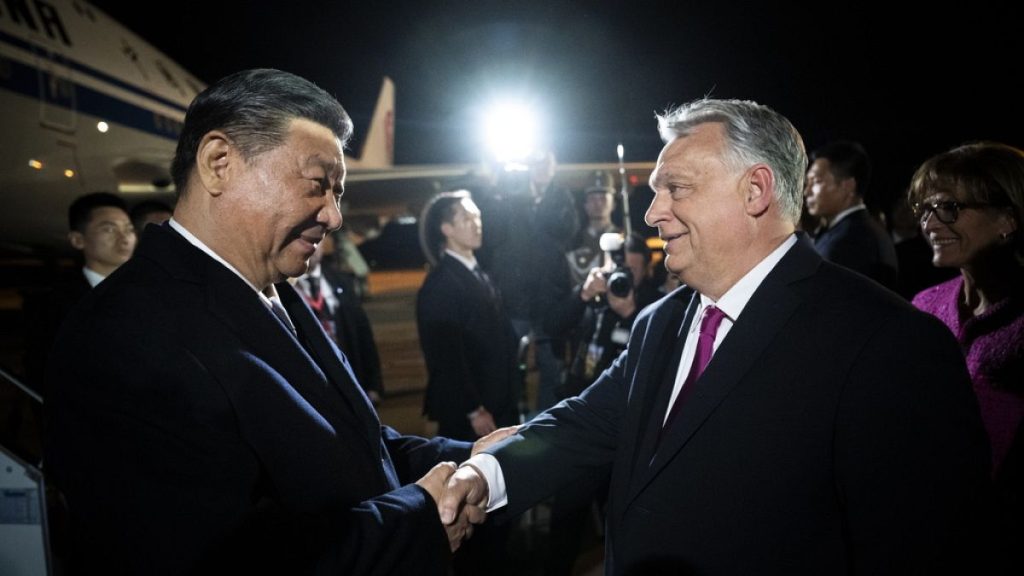Chinese President Xi Jinping’s visit to Hungary is expected to solidify several agreements with Prime Minister Viktor Orbán, further cementing Beijing’s economic presence in the region. This comes as other EU nations are looking to reduce their reliance on China. During his European tour, Xi also met with French President Emmanuel Macron and EU Commission chief Ursula von der Leyen, who urged him to promote more balanced trade with Europe and use his influence on Russia to address the conflict in Ukraine. Despite the concerns of mainstream European leaders, Hungary has actively pursued economic ties with China, becoming the first EU country to engage in Xi’s Belt and Road Initiative.
Hungarian President Tamás Sulyok and Prime Minister Orbán are set to discuss potential Chinese investments in Hungary during Xi’s visit. Beijing has also offered cooperation on public security and law enforcement to Budapest, indicating a broadening of the scope of their partnership. Orbán, known for his nationalist-populist politics, has positioned Hungary as a key player in China’s Belt and Road Initiative, seeking to balance regional alliances with economic partnerships. Ahead of Xi’s visit, Hungarian Foreign Minister Péter Szijjártó announced plans to sign at least 16 bilateral agreements, highlighting the significance of China’s investment in the country.
China, the biggest foreign investor in Hungary in 2023, has been expanding its influence in the region through economic ties and infrastructure investments. Xi’s visit to Serbia, another country friendly to Russia, also emphasized a “shared future” with the nation. Despite China’s claims of neutrality in the Ukraine conflict, criticism has been directed at Beijing for allegedly enhancing Russia’s military capabilities. Hungary, on the other hand, has condemned the invasion but has resisted EU sanctions against Moscow and abstained from providing military support to Kyiv. The proximity of Hungary to the conflict zone has led to calls for China to take a leading role in facilitating peace talks between Russia and Ukraine.
Xi and Orbán are expected to discuss the Ukraine crisis during the Chinese president’s visit to Hungary, with Hungary endorsing a peace plan proposed by China. The strategic importance of Hungary in the region, as well as its economic ties with both China and Russia, highlight the geopolitical complexities at play. Despite concerns about China’s growing influence in Europe, Orbán’s government has actively pursued closer economic relations with Beijing, potentially benefiting from infrastructure and energy investments as part of China’s Belt and Road Initiative. The outcome of Xi’s visit to Hungary, and the agreements that are set to be solidified, will shape the future economic landscape of the region and could have far-reaching implications for European-Chinese relations and the resolution of the Ukraine conflict.


